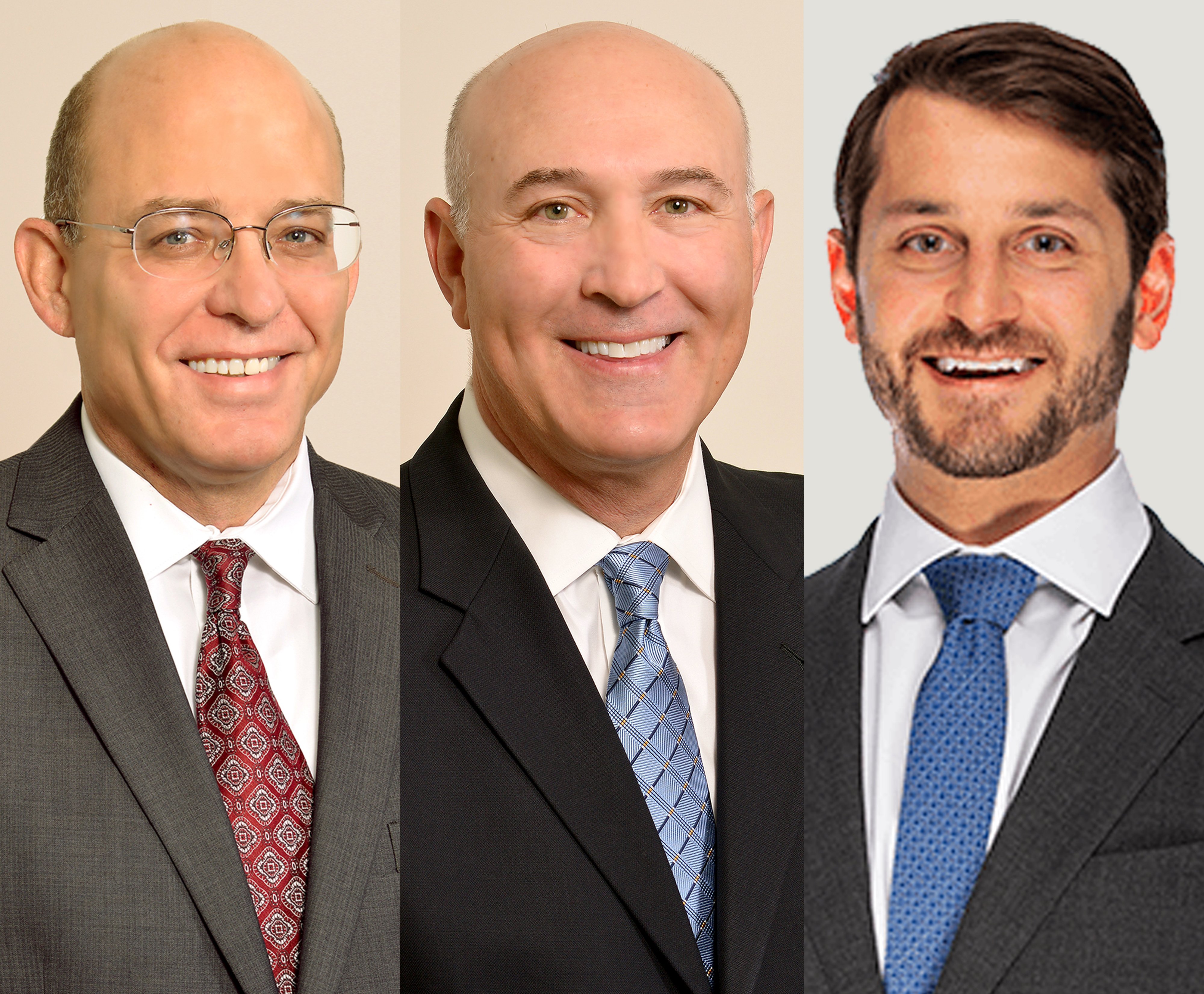Miami Lawyers Tussle Over $53M Judgment in Toll Software Dispute
The Miami-Dade Expressway Authority is appealing the judgment for breaching a contract with a company tasked with developing and implementing a toll collection system.
April 16, 2018 at 10:24 AM
5 minute read

A Miami judge declined to rehear a contract dispute that resulted in a $53 million judgment against the Miami-Dade Expressway Authority over the development and implementation of a toll collection system.
The March 29 order is sending the transportation agency, known as MDX, into an appellate battle in a case that has already lasted several years and gone to trial twice. Electronic Transaction Consultants Corp. won favorable findings both times.
“It was a big-deal case, very expensive on both sides,” said ETC attorney Michael Piscitelli of Vezina, Lawrence & Piscitelli in Fort Lauderdale. “ETC is not the biggest company on Earth, although they're owned by a substantial company as a result of this matter. They had to get additional financing to carry it.”
MDX attorney Joseph Serota of Weiss Serota Helfman Cole & Bierman in Coral Gables said the notice of appeal will be filed shortly. Holland & Knight partner Rodolfo Sorondo will handle the appellate work.
“We believe that there are some substantial legal issues that will be part of the appeal, including the fact that the plaintiffs never complied with the mandatory and exclusive dispute resolution procedures,” Serota said.
The county contracted with ETC in 2009 to provide a toll collection and accounting system for the five major Miami-Dade expressways. Most drivers on those toll roads use a SunPass transponder but, for those who don't, the electronic system needed to photograph license plates and interact with state vehicle registries to mail car owners a bill.
MDX materially breached the contract by missing deadlines to approve requirements, not freezing the design so ETC could develop the software without changes and compressing the schedule to test the system, according to findings made by Miami-Dade Circuit Judge William Thomas after a three-week bench trial.
The expressway authority's actions put the project about seven weeks behind schedule at one point, the judge found. Then the system went live without proper testing, and problems had to be fixed after launch — an expensive and labor-intensive process.
“MDX's reasons for not following the schedule are simply not credible,” Thomas ruled. “There is very little presented by the defense witnesses as to the issue of delay, hindrance or prevention of performance that this court can trust and believe.”
Ultimately, the county terminated the contract, shut off the system and replaced it with a new one. ETC sued in 2012 for breach of contract and wrongful termination.
The trial before Thomas was the second go-round for the attorneys. The case first went to Miami-Dade Circuit Judge John Thornton.
Early on, he issued a partial summary judgment finding ETC was not entitled to operations payments because MDX never provided provisional acceptance as discussed in the contract. The case went to a bench trial in 2015.
After hearing the evidence at trial, the judge decided to reverse his 2013 summary judgment, concluding MDX had interfered with ETC's performance and prevented the company's submitted materials from getting provisional acceptance.
Thornton never signed a final order awarding damages to ETC, but he issued proposed findings of fact and conclusions of law in favor of the company for purposes of mediation. His findings said defense witnesses were not credible.
MDX asked to take more discovery based on that reversal, and it also moved to recuse Thornton, arguing he could not be unbiased about any additional evidence because he had already questioned the credibility of MDX's witnesses. Thornton declined to recuse himself, but the Third District Court of Appeal ruled the case would have to go before a new judge.
In the retrial before Thomas, MDX argued the system never completely worked and therefore was not in compliance with the contract. The defense also argued ETC did not comply with two sections of the contract that require compliance with a dispute resolution procedure before any claims can be made.
The company conceded the system was imperfect when it went live but argued MDX thwarted the software development process at every turn.
To ETC's relief, Thomas accepted the arguments and found MDX's actions “were not reasonable, were not necessary and were not contract compliant.” His Jan. 25 final judgment awarded $43 million plus $10.3 million in interest.
“It's always hard to try something twice,” Piscitelli said. “You use all of the arrows in your quiver the first time. The second time around, their witnesses were prepared to respond to the arguments we made the first time. It was quite a bit more contentious. Apparently, Judge Thomas got it that it was kind of responsive contention rather than any change in what the factual circumstances were.”
Case: Electronic Transaction Consultants v. Miami-Dade County Expressway Authority
Case No.: 2012-046272-CA-01
Description: Breach of contract
Filing date: Nov. 28, 2012
Final judgment date: Jan. 25, 2018
Judge: Miami-Dade Circuit Judge William Thomas
Plaintiffs attorneys: Mike Piscitelli, Fort Lauderdale; Bradley Copenhaver, Tallahassee, Vezina, Lawrence & Piscitelli
Defense attorneys: Joseph Serota and Eric Hockman, Weiss Serota Helfman Cole & Bierman, Coral Gables; Michael Ehrenstein, Ehrenstein Sager, Miami
Judgment amount: $53.3 million
This content has been archived. It is available through our partners, LexisNexis® and Bloomberg Law.
To view this content, please continue to their sites.
Not a Lexis Subscriber?
Subscribe Now
Not a Bloomberg Law Subscriber?
Subscribe Now
NOT FOR REPRINT
© 2025 ALM Global, LLC, All Rights Reserved. Request academic re-use from www.copyright.com. All other uses, submit a request to [email protected]. For more information visit Asset & Logo Licensing.
You Might Like
View All
Million-Dollar Verdict: Miami Jury Sides With Small Business

Automaker Pleads Guilty and Agrees to $1.6 Billion in Payouts

'I've Seen Terrible Things': Lawyer Predicts Spike in Hazing Suits
Trending Stories
- 1Apply Now: Superior Court Judge Sought for Mountain Judicial Circuit Bench
- 2Harrisburg Jury Hands Up $1.5M Verdict to Teen Struck by Underinsured Driver
- 3Former Director's Retaliation Suit Cleared to Move Forward Against Hospice Provider
- 4New York Judge Steps Down After Conviction for Intoxicated Driving
- 5Keys to Maximizing Efficiency (and Vibes) When Navigating International Trade Compliance Crosschecks
Who Got The Work
J. Brugh Lower of Gibbons has entered an appearance for industrial equipment supplier Devco Corporation in a pending trademark infringement lawsuit. The suit, accusing the defendant of selling knock-off Graco products, was filed Dec. 18 in New Jersey District Court by Rivkin Radler on behalf of Graco Inc. and Graco Minnesota. The case, assigned to U.S. District Judge Zahid N. Quraishi, is 3:24-cv-11294, Graco Inc. et al v. Devco Corporation.
Who Got The Work
Rebecca Maller-Stein and Kent A. Yalowitz of Arnold & Porter Kaye Scholer have entered their appearances for Hanaco Venture Capital and its executives, Lior Prosor and David Frankel, in a pending securities lawsuit. The action, filed on Dec. 24 in New York Southern District Court by Zell, Aron & Co. on behalf of Goldeneye Advisors, accuses the defendants of negligently and fraudulently managing the plaintiff's $1 million investment. The case, assigned to U.S. District Judge Vernon S. Broderick, is 1:24-cv-09918, Goldeneye Advisors, LLC v. Hanaco Venture Capital, Ltd. et al.
Who Got The Work
Attorneys from A&O Shearman has stepped in as defense counsel for Toronto-Dominion Bank and other defendants in a pending securities class action. The suit, filed Dec. 11 in New York Southern District Court by Bleichmar Fonti & Auld, accuses the defendants of concealing the bank's 'pervasive' deficiencies in regards to its compliance with the Bank Secrecy Act and the quality of its anti-money laundering controls. The case, assigned to U.S. District Judge Arun Subramanian, is 1:24-cv-09445, Gonzalez v. The Toronto-Dominion Bank et al.
Who Got The Work
Crown Castle International, a Pennsylvania company providing shared communications infrastructure, has turned to Luke D. Wolf of Gordon Rees Scully Mansukhani to fend off a pending breach-of-contract lawsuit. The court action, filed Nov. 25 in Michigan Eastern District Court by Hooper Hathaway PC on behalf of The Town Residences LLC, accuses Crown Castle of failing to transfer approximately $30,000 in utility payments from T-Mobile in breach of a roof-top lease and assignment agreement. The case, assigned to U.S. District Judge Susan K. Declercq, is 2:24-cv-13131, The Town Residences LLC v. T-Mobile US, Inc. et al.
Who Got The Work
Wilfred P. Coronato and Daniel M. Schwartz of McCarter & English have stepped in as defense counsel to Electrolux Home Products Inc. in a pending product liability lawsuit. The court action, filed Nov. 26 in New York Eastern District Court by Poulos Lopiccolo PC and Nagel Rice LLP on behalf of David Stern, alleges that the defendant's refrigerators’ drawers and shelving repeatedly break and fall apart within months after purchase. The case, assigned to U.S. District Judge Joan M. Azrack, is 2:24-cv-08204, Stern v. Electrolux Home Products, Inc.
Featured Firms
Law Offices of Gary Martin Hays & Associates, P.C.
(470) 294-1674
Law Offices of Mark E. Salomone
(857) 444-6468
Smith & Hassler
(713) 739-1250







